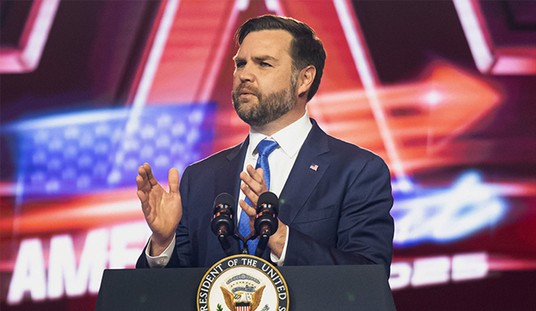Barack Obama’s presidential victory last Tuesday was a triumph of clever advertising, slick marketing, and subversion of the way elections were run in America for over 200 years.
I’m not saying that. Fawning advertisers, marketers, and writers at Advertising Age are.
On October 17, two and a half weeks before the election, Ad Age named the Obama campaign its 2008 Marketer of the Year, beating out the likes of Apple, Zappos, and other household names that sell real products and services to consumers.
As to the marketing techniques, Ira Teiniwitz noted that Team Obama is getting plentiful plaudits, largely justified:
The genius of Obama’s team, led by Mr. Plouffe and senior adviser David Axelrod, and ad group GMMB, headed by Jim Margolis, was its recognition that brand integration has transcended mere marketing to become a blend of technology, targeting, staffing, outreach, and fundraising.
But there’s no indication that anyone at Ad Age is even aware that one of Team Obama’s vaunted “technology strategies” involved deliberately disabling its card-processing Automated Verification System, more than likely enabling millions of dollars, if not tens of millions, in untraceable credit card and prepaid card contributions, much of it apparently from foreign sources, to pour into the campaign.
The flacks have also declared that Team Obama’s goal of “rebranding” the USA is already a mission accomplished. At least one less-than-objective observer is feeding the fanfare:
“Overnight it has become fashionable to be an American again, and the whole world is looking at us once again as this beacon of hope,” said Michael Kempner, CEO of Interpublic’s MWW. Mr. Kempner is a member of the Obama National Finance Committee and was once deputy finance chair of the DNC.
“The election and nomination process is the brand relaunch of the year,” said David Brain, CEO of Edelman Europe, Middle East, and Africa. “Brand USA. It’s just fantastic.”
Apparently, no one at Ad Age thought to ask how it was that, during the era of the much-maligned Bush “brand,” countries like France, Germany, Canada, and others moved rightward. Also left out of the evaluation were the feelings of the liberated in Iraq and Afghanistan. Additionally, there was no discussion of the potential brand impact, if you will, of the nearly instant post-election belligerence and faux pleasantness, respectively, of Russia’s Medvedev and Iran’s Ahmadinejad, whose congratulatory letter to Obama said that “Teheran welcomes basic and fair changes in U.S. policies and conducts.”
But it’s Pete Snyder’s post-election piece on the effect of “early voting” that takes the tone-deaf cake (bolds after the headline are mine):
“How Obama Killed ‘Election Day’ and Became President”
Axelrod & Co. Understood Time Shifting and Consumer Control
The simple fact is that Obama and his campaign chiefs understood two of the most significant (but little talked about) changes of this campaign cycle:
- The election timetable fundamentally shifted from being just about Election Day or even the last 72 hours (as was the rule of thumb for decades) to being decided as early as six weeks in advance.
- Due to the seismic changes in how voters get and process information that we marketers have seen for quite some time the voter, just like the consumer, is now in control and thus would be open to making his or her voting decisions earlier than ever.
… Obama acted quite differently. Having opted-out of his promise to abide by campaign finance laws (which proved to be one of his shrewdest and smartest moves), he went for broke.
Let’s translate:
- The fact is that Obama broke a promise he made throughout the primaries. He knew that his supporters and the media (but I repeat myself) wouldn’t mind. (Aside: Don’t you love the use of weasel terms like “opt-out” for what is really “lying”?)
- This broken promise enabled him to spend tens of millions more than any campaign in history. Complaints about spending, a media obsession in presidential elections for at least the past 30 years when the GOP had the funding edge, were conveniently non-existent this time around.
- The increase in the number of states permitting early voting meant that millions of voters cast their ballots before a great deal of relevant information was in.
“Early voting” failed to increase turnout. So what was the point? Aside from enabling open and obvious vote fraud (how widespread we’ll never know), the point was to get as many Obama fans to cast their ballots before something came along — including, even in the absence of new information, the sober reflection many voters actually engage in during the final hours before Election Day — to change their minds.
In 2000, a previously undisclosed George Bush drunk-driving conviction became known in the campaign’s final days and raised legitimate questions. (Was it serious? Was it a timed and coordinated dirty trick reflecting badly on Al Gore? Was Bush correct to have not disclosed it? My opinions: no, yes, and no; your mileage may vary.) If early voting had been available in more states at the time, it’s likely that more than a few voters who voted early for Bush would have regretted that decision.
In 2008, millions of early voters cast their ballots without being aware of relevant and possibly vote-altering revelations about Barack Obama that came out during the final few weeks. These would include the untraceable card contributions mentioned earlier; Obama’s previously unreported January statement that his cap-and-trade plan would “bankrupt” new coal plants; and his “spread the wealth” statement to Joe the Plumber, combined with subsequently disclosed similar sentiments going back at least 12 years.
Not that you’ll ever get many voters to acknowledge that they made the wrong decisions — the marketers call that “cognitive dissonance” — but given the fact that John McCain closed the polling gap significantly in the race’s final two weeks, it’s not unreasonable to believe that early voting cost him a point or two of the six by which he lost.
Bush 2000 and Obama 2008 underscore my strong belief that no-excuses early voting is a dangerous travesty, and that voting rules should return to the traditional absentee balloting criteria of previous years. The idea that much closer future elections may be decided by less-than-informed, peer-pressured, convenience-focused, “time-shifting” — and, I would add, “thought-avoiding” — early voters who have, in effect, “killed Election Day,” should be troubling to many. I fear it won’t be.









Join the conversation as a VIP Member